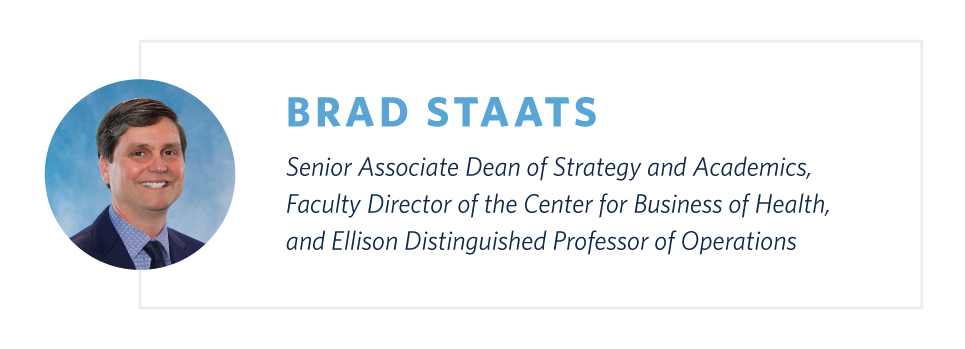Thought Leadership
7 Keys to Continuous Learning

In an ever-evolving world, we and our organizations risk becoming irrelevant if we fail to learn. But according to UNC Kenan-Flagler Business School’s Brad Staats, most of us are bad at learning as it often involves taking risks and coming face-to-face with failure. In his book Never Stop Learning: Stay Relevant, Reinvent Yourself, and Thrive, he explains the importance of ongoing education. Here are seven key takeaways on why learning is important in order to stay relevant, reinvent yourself and thrive.
1) Be willing to fail in order to learn
Two of the world’s greatest entrepreneurs — Steve Jobs and Walt Disney — took risks and failed several times over before finding success. While failing might hurt, eventually learners find freedom in the opportunity to begin again. Learning from your mistakes makes you less afraid of uncertainty and trying new things.
2) Focus on the process rather than the outcome
You might know what you want your outcome to be, but have no idea how to get there. Take one step at a time, failing and learning at every step. Multiple, small victories over the course of a process are the key to reaching visible success.
3) Don’t be afraid to ask questions
Continuous learners aren’t afraid to say “I don’t know” when asked a question they don’t have the answer to. They immediately follow the question with “but I’ll find out” and begin to research a solution. They recognize that people rarely learn anything new when given the answers.
4) Take time for reflection and relaxation
Don’t let busyness get in the way of learning. Refrain from acting for the sake of acting, and take time to think and recharge to avoid repeating a previous mistake. By giving yourself time to reflect, you often find a new solution to try or, at the very least, return to your project refreshed with a new perspective.
5) Play to your strengths
You don’t have to be an expert at everything. Focus on your strengths and build a team around you of complementary — but not redundant — skills. Recognize your weaknesses and surround yourself with those who bring those to the table as strengths.
6) Learning from those around you
Learning isn’t a solo exercise. A business is the ideal environment to learn from others. Put aside your own ego or biases and utilize those around you who might have expertise to offer — and you, in turn, can offer your expertise as well. Learning is, after all, a two-way conversation.
7) Build a portfolio of experiences
While experience in a specific skill improves performance, it does so at a decreasing rate. Variety is more productive. If tasks are related, knowledge transfers from one area to another and becomes a learning accelerator, while variety challenges the mind to learn something new. Use both specialization and variety as learning tools.
Do not risk becoming irrelevant by being too busy to learn or avoiding the risk of failure. Hear more from Brad on the importance of learning here.
